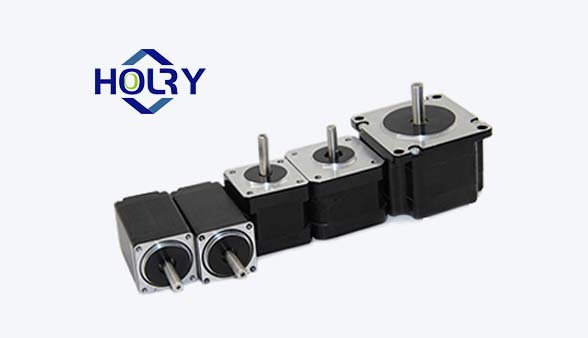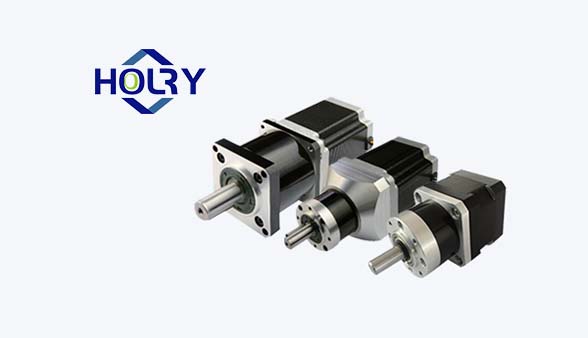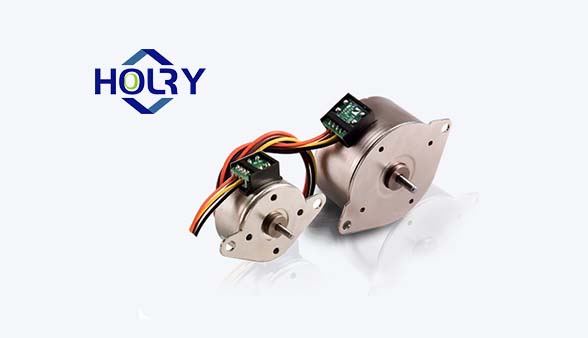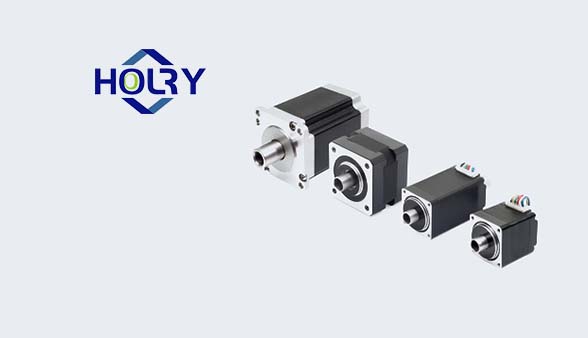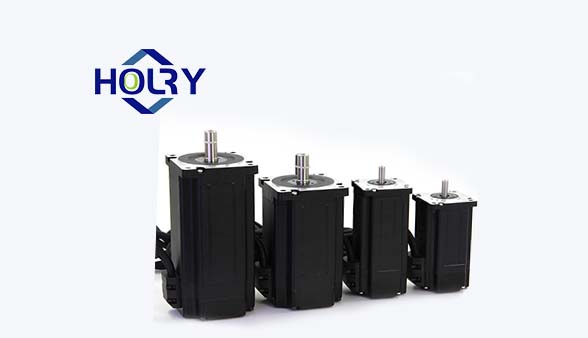HOLRY is your best choice of stepper motor supplier in China
where to buy stepper motor, f you are looking for stepper motor , or wholesale motor Holry motor is your best choice, Holry is the source of motor manufacturers.good price, high quality.
HOLRY Stepper motion control products are among the best in the industry in China, and our Stepper motor product line includes hybrid Stepper Motors, Gearbox Stepping Motors, PM Stepper Motors, Special Stepper Motors, Closed Loop Stepper Motors:
What are the types of stepper motors?
Hybrid Stepper Motors
Hybrid stepper motors are a type of stepper motor that combines the best features of both permanent magnet (PM) and variable reluctance (VR) stepper motors.They are called "hybrid" because they incorporate elements from both types of stepper motors. hybrid stepper motors offer a balance of torque, resolution, and responsiveness, making them suitable for a wide range of applications where precision and reliability are essential.

Here's a breakdown of their key features:
Construction:
Hybrid stepper motors typically have a rotor with teeth on both the permanent magnet and variable reluctance sections.This design allows them to benefit from the high torque and fine resolution of PM stepper motors, as well as the low inertia and step accuracy of VR stepper motors.hybrid stepper motors offer a balance of torque, resolution, and responsiveness, making them suitable for a wide range of applications where precision and reliability are essential.
High Torque and Resolution:
Due to their hybrid construction, these motors can provide high torque output and precise positioning, making them suitable for applications that require both power and accuracy, such as CNC machines, 3D printers, and robotics.
Low Rotor Inertia:
Hybrid stepper motors often have a lower rotor inertia compared to PM stepper motors, which enables them to respond quickly to changes in input signals and achieve higher acceleration rates.This feature is beneficial for applications that require rapid movement and responsiveness.
Step Angle:
The step angle of hybrid stepper motors can vary depending on the design, but they typically have a step angle ranging from 0.9 to 1.8 degrees per step.This finer step resolution allows for smoother motion and better control over positioning.
Control Options:
Hybrid stepper motors can be controlled in various ways, including open-loop control, closed-loop control (using encoders or sensors for feedback), and microstepping.Microstepping divides each full step into smaller microsteps, resulting in smoother motion and reduced vibration.
Gearbox Stepping Motor
Gearbox stepping motors combine the precise control of stepper motors with the torque amplification and speed reduction capabilities of gearboxes, making them versatile and suitable for various motion control applications.
A gearbox stepping motor, also known as a geared stepper motor, is a type of stepper motor that is equipped with a gearbox. The gearbox is a mechanical device that consists of gears arranged in a specific configuration to increase torque output and/or reduce the speed of the motor's output shaft.

Here are the key features and functions of a gearbox stepping motor:
Torque Amplification:
The primary purpose of adding a gearbox to a stepper motor is to amplify its torque output. By increasing the torque, the motor can handle higher loads and perform tasks that require more force, such as moving heavy objects or operating machinery.
Speed Reduction:
In addition to increasing torque, the gearbox can also reduce the speed of the motor's output shaft. This is achieved by using gear ratios, where the input shaft (connected to the motor) rotates faster than the output shaft (connected to the load). Speed reduction is useful in applications where precise and slow movement is required, such as in robotics or camera positioning systems.
Precision and Control:
Gearbox stepping motorsmaintain the inherent precision and control characteristics of stepper motors. They can still accurately move in discrete steps, allowing for precise positioning and motion control. This makes them suitable for applications that require both high torque and precise movement, such as industrial automation and CNC machines.
Gearbox Types:
Gearboxes used with stepper motors can come in various types, including planetary, spur, worm, or harmonic drives. Each type offers different trade-offs in terms of torque amplification, speed reduction, size, efficiency, and cost, allowing for flexibility in design and application-specific requirements.
Application Flexibility:
Gearbox stepping motors find applications in a wide range of industries and systems, including robotics, 3D printers, conveyor systems, medical devices, and automotive equipment. They provide the necessary torque and precision for these systems to operate effectively and reliably.
PM stepper motors
A PM stepper motor, or Permanent Magnet stepper motor, is a type of stepper motor that utilizes permanent magnets to create magnetic fields within the motor. These magnets are typically arranged in a circular pattern around the rotor, which is the rotating part of the motor.
In a PM stepper motor, the rotor aligns itself with the magnetic field generated by the stator (the stationary part of the motor) when an electrical current is applied to the windings in the stator. By controlling the sequence and timing of the current pulses to the stator windings, the rotor can be precisely rotated in discrete steps, making PM stepper motors useful for applications requiring precise positioning and control, such as in robotics, automation systems, and 3D printers.

The Power of PM Stepper Motors
Transforming Industry with Permanent Magnet Stepper Motors
Innovation is the heartbeat of progress, propelling industries towards greater efficiency and precision. At the heart of this evolution lies the PM stepper motor - a silent hero revolutionizing automation and robotics. Let's delve into the prowess of these marvels and their impact across diverse sectors.
Embracing Efficiency: The Essence of PM Stepper Motors
PM stepper motors, adorned with permanent magnets, embody efficiency and accuracy. These motors, orchestrated by meticulously timed electrical pulses, offer unparalleled control and reliability. Their ability to rotate in precise steps makes them indispensable in applications demanding pinpoint accuracy.
Special stepper motors
Special stepper motors refer to stepper motors that are designed for specific applications or have unique characteristics tailored to particular requirements. These motors can vary significantly depending on the application they are intended for. Here are a few examples of special stepper motors:

High-Torque Stepper Motors:
These motors are designed to provide high torque output, making them suitable for applications requiring high torque at low speeds, such as robotics, CNC machines, and 3D printers.
Microstepping Motors:
Microstepping motors have the ability to divide each full step into smaller microsteps, allowing for smoother motion and more precise positioning. They are commonly used in applications where smooth motion control is critical, such as in camera positioning systems and telescope mounts.
Linear Stepper Motors:
Linear stepper motors translate rotary motion into linear motion directly, eliminating the need for additional mechanical components like belts or screws. They are used in applications such as precision positioning stages and automated manufacturing systems.
IP-rated Stepper Motors:
These stepper motors are designed to withstand harsh environments, such as those with high levels of dust, moisture, or extreme temperatures. They are often used in outdoor applications, industrial automation, or automotive systems.
Customized Stepper Motors:
In some cases, stepper motors are customized to meet specific requirements of an application. This could involve modifications to the motor's size, shape, mounting options, or electrical characteristics to fit within the constraints of a particular system.
Closed-Loop Stepper Motors:
Unlike traditional open-loop stepper motors, closed-loop stepper motors incorporate feedback mechanisms (such as encoders) to constantly adjust the motor's position and correct any errors. This improves accuracy and reliability, making them suitable for applications where precise motion control is essential.
Low-Noise Stepper Motors:
These motors are designed with features to reduce noise during operation, making them suitable for applications where noise levels need to be minimized, such as in medical devices, office equipment, or consumer electronics.
High-Speed Stepper Motors:
While stepper motors are not typically known for high-speed operation, specialized designs can achieve higher speeds than traditional stepper motors. These motors find applications in areas such as high-speed pick-and-place machines or printing presses.
Closed-loop stepper motors
Closed-loop stepper motors, also known as servo-controlled stepper motors or hybrid stepper servo motors, are a type of stepper motor system that incorporates closed-loop feedback mechanisms to improve performance and accuracy.
Traditional stepper motors operate in an open-loop system, meaning they execute commands based solely on the input pulses received, without any feedback about the actual position or movement of the motor shaft. While open-loop stepper motors are cost-effective and simple to control, they may suffer from issues such as missed steps, position drift, or lack of precise positioning, especially under dynamic loads or changing environmental conditions.
Closed-loop stepper motors, on the other hand, integrate feedback devices like encoders or resolvers to constantly monitor the motor's actual position and compare it to the desired position. This feedback information is used to adjust the motor's operation in real-time, ensuring accurate positioning and motion control. If the motor encounters resistance or deviation from its commanded path, the closed-loop system can detect this and make corrections to maintain the desired position.

Key features of closed-loop stepper motors include:
Improved Accuracy:
By continuously monitoring the motor's position and making adjustments as necessary, closed-loop stepper motors offer higher accuracy and repeatability compared to open-loop systems.
Reduced Risk of Position Loss:
Closed-loop control helps mitigate the risk of missed steps or position loss, which is particularly beneficial in applications where precise positioning is critical.
Increased Torque and Speed:
Closed-loop systems can optimize motor performance by adjusting torque and speed parameters based on real-time feedback, allowing for improved performance under varying load conditions.
Dynamic Response:
These motors can respond dynamically to changes in load or environmental conditions, making them suitable for applications with dynamic motion profiles or variable loads.
Enhanced Reliability:
By minimizing the risk of missed steps and position errors, closed-loop stepper motors offer improved reliability and stability in operation.
Closed-loop stepper motors find applications in various industries such as robotics, CNC machining, 3D printing, automation, and precision positioning systems where accurate motion control is essential. While they may be more complex and expensive than open-loop stepper motors, the benefits of improved performance and accuracy justify their use in many demanding applications.
English
Русский
العربية
Français
Español
Português
Deutsch
italiano
日本語
한국어
Nederlands
Tiếng Việt
ไทย
Polski
Türkçe
አማርኛ
Bahasa Melayu
தமிழ்
Filipino
Bahasa Indonesia
magyar
Română
Čeština
हिन्दी
فارسی
Kiswahili
Slovenčina
Slovenščina
Norsk
Svenska
українська
Ελληνικά
Suomi
עברית
Dansk
বাংলা
Hrvatski
Afrikaans
Gaeilge
Eesti keel
Māori
සිංහල
Azərbaycan dili
Euskara
Беларуская мова
Български
guarani
Kreyòl ayisyen
Kurdî
Lietuvių
Македонски
తెలుగు









